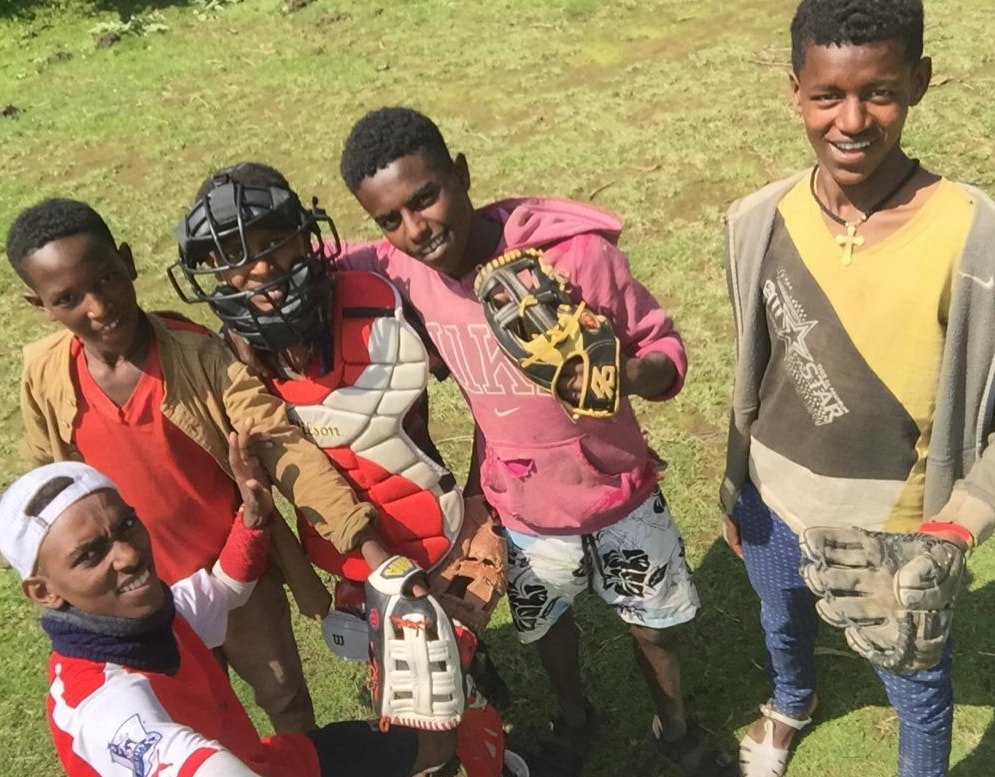|
In late January of 2020, I received a message from a former Peace Corps colleague asking if I could serve as a point of contact for a young Ethiopian man about to arrive in Vietnam. “Of course,” I replied, “pass him my number.” His name was Mezgebu. He was coming to Vietnam to study Mechanical Engineering after being denied a visa to the US, despite acceptance into the Yale Young Scholar’s Program as well as the Engineering program at Marietta College. The colleague who messaged me had helped to crowdfund his expenses that would otherwise be too much for his family to absorb. By the time Mezgebu and I met in person, about two weeks later, the novel coronavirus had already breached Vietnam’s borders. Due to the epidemic, the start of fall classes was postponed and the majority of the Vietnamese population simply stayed put in their hometowns, where they had flocked weeks earlier in advance of the Lunar (Chinese) New Year. “I’m not sure how much help I can be,” I told him. “It seems my time is running out.” With my visa expiration fast approaching and coronavirus case numbers climbing exponentially, it was looking more and more likely that I would be heading back to the states in just a couple weeks.
Mezgebu looked deflated. “I will do whatever I can to show you around and get you situated,” I added, though not entirely sure how much I would actually be able to do. After a bit of talking, I learned that Mezgebu had actually been exposed to baseball in Ethiopia, by the same person who put us in touch, using equipment that I had brought into the country for use in Bekoji. What a small world! I ended up booking the flight, despite every ounce of me wanting to remain in Vietnam. One of my final acts was a “going away” baseball practice with the team out in District 7. I invited Mezgebu to come along. He was very excited to see the game in action, and eager to get more experience. I showed him a thing or two, but ultimately left him in the hands of the Ho Chi Minh team. “Look out for him,” I asked of Duc, the team captain. “Treat him as part of the family.” Duc and the team did just that. Following my departure in late February, Mezgebu became a regular at Saturday practices. The team became his primary friend group; really, it was the only social circle he had, given that the pandemic kept the school windows shuttered. While Mezgebu was making the most of the opportunity, his ultimate goal was to find a way to make it home. As the months dragged on, flights remained scarce and expensive. He was effectively stranded in Vietnam. As September approached – and the Ethiopian New Year loomed – it looked as though he would finally find his way back home. Since his possessions were minimal, he agreed to take along as much baseball gear as we could gather. I put in requests to the Vietnamese team (now known as the Pioneers), as well as to the Commissioner of the Ho Chi Minh Baseball League (HBL) and to the Japan-Vietnam Baseball Association (JVBA) ,via Duc. The Vietnam baseball family came through, offering up more material than Mezgebu could even carry. After a frantic and confusing couple of days leading up to the flight, which included a scramble to cover costs for a COVID test, Mezgebu and a bag full of balls and gloves boarded a plane bound for Ethiopia. At present, the material is in his hometown of Injibara, where he has taught a handful of students the basics of baseball, and is coordinating with Rohobot in Bekoji about next steps. World Baseball Project would like to thank the Pioneers, HBL, and JVBA for their contributions to this effort, and for welcoming Mezgebu into the family. It was a total team effort that never would have happened without their support.
0 Comments
Leave a Reply. |
Archives
November 2020
Categories
All
|

 RSS Feed
RSS Feed